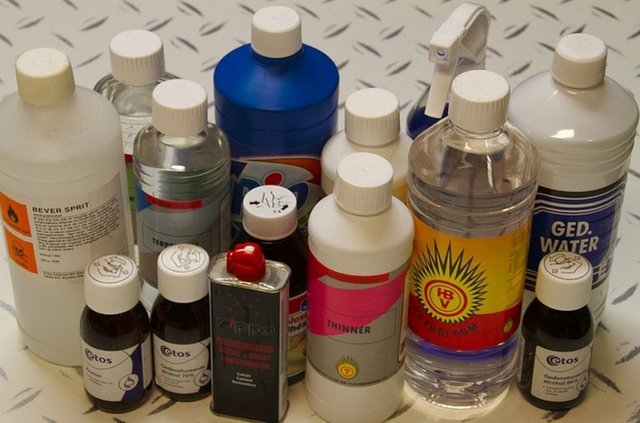Exposure to solvents would increase the risk of multiple sclerosis
Exposure to solvents would increase the risk of multiple sclerosis
A Swedish study notes that the combination of genetic and environmental factors significantly amplify the risk of developing this degenerative disease.

Multiple sclerosis is a chronic, autoimmune and inflammatory disease of the central nervous system (brain and spinal cord). It suffers twice as many women as men, and, in total, affects more than 2.5 million people around the world. In Spain, there are 47,000 people who suffer from it, and every year 1,800 new cases are diagnosed, according to the Spanish Society of Neurology (SEN); In fact, the number of patients has doubled in the last two decades. As explained in a press release by the SEN, "smoking, vitamin D deficiency, low exposure to sunlight and changing diet" could be involved in this increase in cases.
With all these data in hand, it is obvious that it is very necessary to carry out studies to find new drugs for their treatment, to delay their progression. In addition, specialists believe that precision medicine should be targeted, since, when each patient presents a different activity profile of the disease, with symptoms that differ from one person to another, the personalization of the therapies is fundamental. And, in the context of finding new treatments, it is also important to study the possible triggers of this degenerative pathology.
Thus, a recent study, carried out by the Karolinska Institute in Stockholm (Sweden), has concluded that exposure to solvents such as those found in paints and varnishes may increase the risk of suffering multiple sclerosis. , and this risk is even greater if this factor is combined with others. Previously, it had already been observed that smoking negatively influences the risk of developing this chronic disease in those people genetically predisposed to suffer it, and therefore wanted to analyze another source of lung irritation -as organic solvents- as another possible factor of risk.
The Swedish study, published in the scientific journal Neurology, was carried out evaluating a total of 2,042 patients diagnosed with the disease and 2,947 subjects who do not suffer from it. All of them were asked if they were smokers or not and also if they had been exposed to solvents. They also underwent blood tests with the aim of detecting a genetic variant that they have related to a greater predisposition to the appearance of multiple sclerosis and that would carry 30% of the population - the presence of this genetic mutation does not imply that the person go to develop the disease far from it; in fact, most carriers will not suffer it.
A cocktail of factors
The results of this investigation confirmed the relationship between exposure to organic solvents and an increased risk of suffering from the disease, as well as the fact that the combination of the genetic factor and the environmental factor -as happened with smoking- increased this risk much more. And among those participants in the study who carried the indicated genetic variant, there was also a synergistic effect - that is, that their combined effect was greater than the sum of each agent individually - between organic solvents and smoking. In fact, Swedish scientists have been surprised that the interaction of the three factors increased both the risk: those who presented the three analyzed - genetic switching, smoking and exposure to solvents - were 30 times more likely to develop the disease than those people who did not present any of them.
Scientists also explain that, of course, the risk of suffering from the disease increases the greater the dose of exposure to solvents, so that a professional painter would be more exposed than a private individual who has occasionally painted his house , as he explained, in an interview granted to the scientific social network ResearchGate, one of the authors of the study, Anna Hedström.
What can be done to minimize risks when you suffer a greater genetic susceptibility to developing the disease - people with the genetic variant and also with a family history of the disease? According to Heström, "avoid tobacco and unnecessary exposure to organic solvents, and especially the combination of both factors."
As to whether these findings could have an application in new treatments for this pathology, the researcher explains that more studies are needed to understand the mechanisms behind them, but that a greater knowledge of them "will increase the opportunity to develop new treatments in the future"